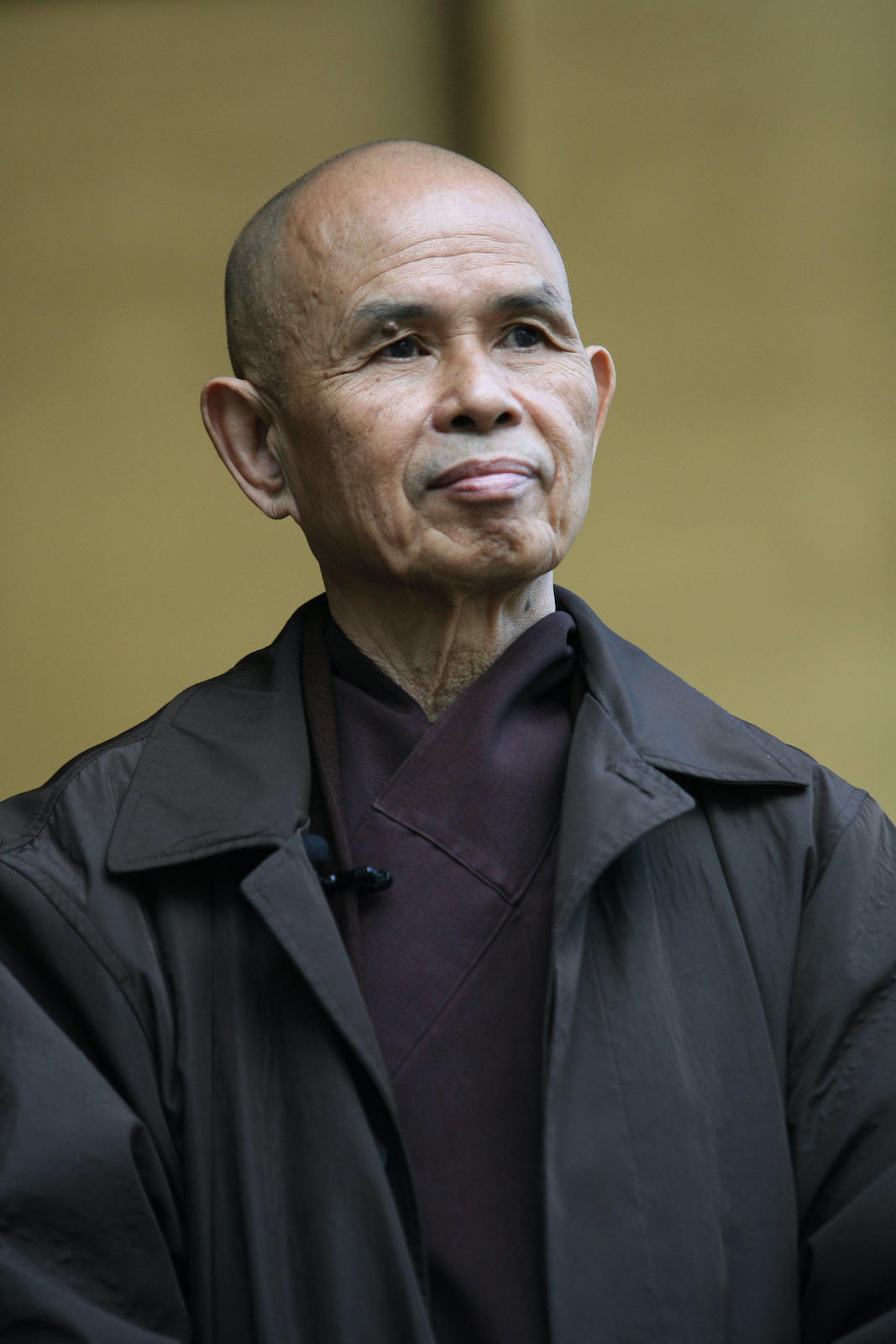A hero is not someone who is perfect, it is someone who's good outshines their faults. This list is designed to be a work in progress, but here are some of the people I revere as my personal heroes. These are people I look up to and wish to embody their character, while still holding on to my unique essence.
Typically, I have lots of criticisms to levy against organized religion and religious leaders, but this one is different. Known by his followers as "Thay" (the vietnamese term for "teacher"), Thich Nhat Hanh is a vietnamese monk that did more than just preach. I think religion at its best doesn't just create beautiful ideas but beautiful people. Thay was just that: a beautiful person. He got banished from his home country during the Vietnam war because he preached peace. He was so active in his protests for peace that the government thought him a threat and decided he wasn't allowed into his home country anymore. The ways that he pushed back against violence directly inspired Dr. Martin Luther King Jr's concept of civil disobedience and nonviolent protest in the civil rights movement. Dr. MLK Jr. himself even nominated Thay for the Nobel Peace prize.
Thay spent decades wandering around France, the US, and other countries trying to spread peace through what he called "engaged Buddhism", a practice of peace that involved stepping into society and engaging in developing peace rather than sitting and meditating passively in a monastery away from society and its problems. He showed what engaged Buddhism looks like by hosting workshops after 9/11 to help people in the US manage their fear and hatred so that they didn't let it consume them, as he had seen in war torn Vietnam. He has been an ally to LGBT folks since the 90s, long before it was socially acceptable to support them. His teachings often challenged gender roles as well, often drawing attention to his feminine aspects and how he prefers being a "mother figure" to people rather than a "father figure."
Normally, I get turned off hearing religious speakers talk about how to get through pain, because it is often shallow and sanatized for how hard life can truely be. "Just pray" or "just meditate" is what I often hear. Whenever this teacher spoke about how to handle pain and suffering, I believed him deeply. I say this because he has every reason to be anxious, depressed, and filled with trauma. He saw death and war firsthand, and practiced in monasteries that saw the war in Vietnam, and yet...somehow, he did not develop a hatred towards these people (which would be apparent through his actions more than his words). He was controversial in his attempts to connect with outcasts and societies "enemies", whether that was enemy soldiers, gay folks, and people with mental illnesses to name a few. He often talked about how to transform suffering into peace, and that the greatest peace is possible when suffering is fully acknowledged and tended to with love and compassion. His teachings must have paid off because he is not only one of the most prolific Buddhist teachers in the west, but he is responsible for making eastern topics from Buddhism digestable for westerners like myself. This made him both authentic to his Vietnamese heritage without the need to eusurp the authenticity of others.
When he had a stroke that left him unable to speak and walk, his followers would often state he exuded peace even in his disabilities as he approached death. He lived out his last years in peace and as such is an icon for me that it is possible to find peace in an anxious world without deluding myself or ignoring the suffering all together. He taught me that true peace comes with a serene encounter of our suffering, and that we can tend to it as if it were a crying child. While I still suffer myself, I do believe (because of him) that there is a better future for myself, even if I can't change some of my life's circumstances that has caused me great suffering, but I can change myself and how I relate to the pain, and maybe one day I can reach that point where I can see those who hurt me and, with the same mind as Thay, look at them with eyes of compassion and peace.
To learn more about the tradition he founded, and his teachings,
click here.

